Flourishing Champions
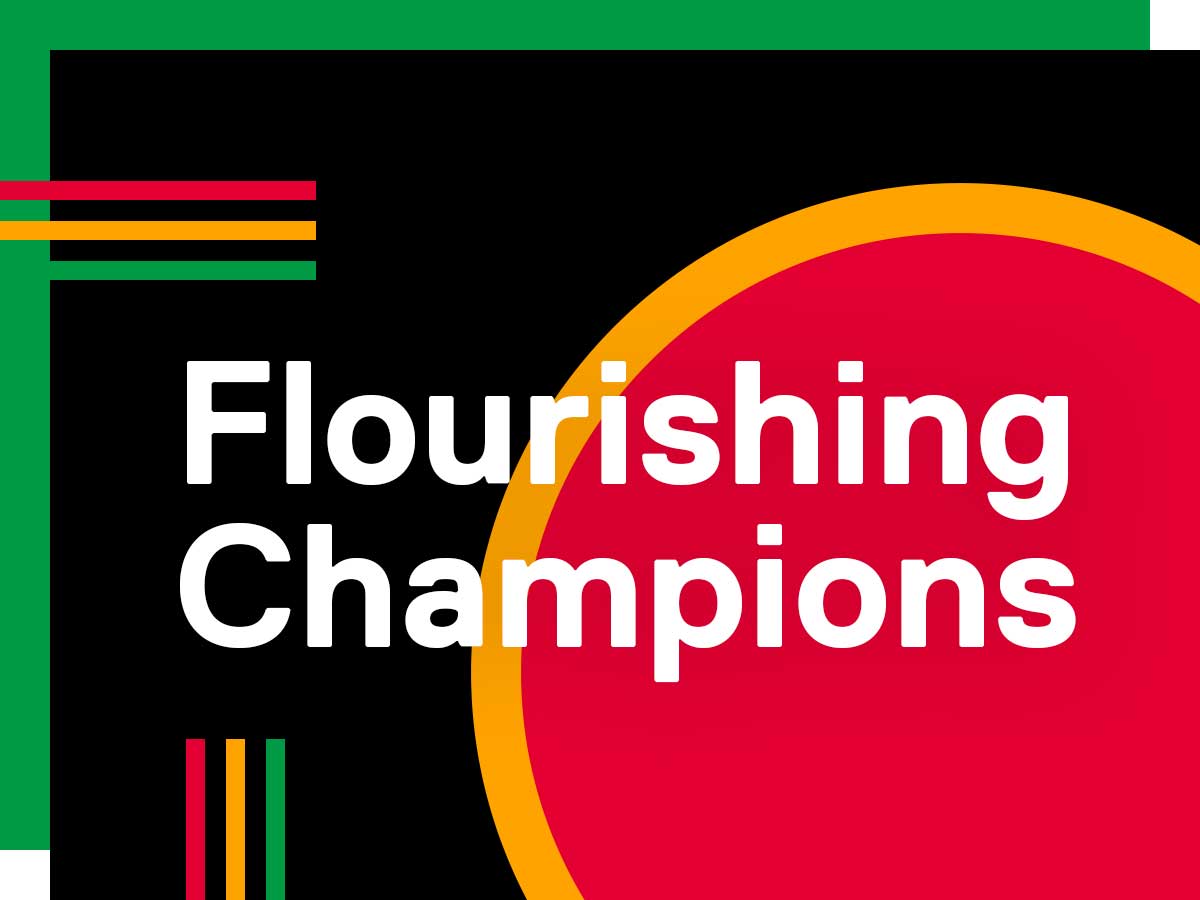
From law and finance to entrepreneurship and education, Toronto Metropolitan University (TMU) has many inspiring alumni and friends who are trailblazers in their fields, and leading and advocating to expand opportunities for others in the Black community.
They’ve inspired us and they’ll also inspire you. Meet and be moved by our 2023 Flourishing Champions.

Journalism ’77, Honorary Doctor of Laws ’21
Former Regional Senior Justice, Ontario Court of Justice
Justice Gregory Regis has been a judge of the Ontario Court of Justice since 1999. In 2007, he became the first person of colour in Canada to be appointed a Regional Senior Justice. Before entering the legal profession, Gregory had a successful career as a journalist and editor with Associated Press and CBC Radio and Television, among other international news services.
What does it mean to you to be a trailblazer in your field — becoming the first person of colour in Canada to be appointed a Regional Senior Justice?
From a personal perspective, it re-enforced my view that I was making a meaningful contribution to the justice system. I was elated that my work and skills were recognized. As a Black person, the appointment imposed a tremendous responsibility on me. I knew I had to perform in that office at the highest standards. Anything less could potentially have negative impacts on my family and community.
How have you seen the judicial landscape change since taking that role, and what more needs to be done to increase diversity?
The judges of our court are beginning to resemble society. Judges from so-called “diverse communities” now serve in top administrative roles in all of Ontario’s courts. Indeed, the Chief Justice of Ontario, Justice Michael Tulloch, is a Black man. To maintain and increase these gains, members of our community must remain vigilant and continue to work toward the goal that all Canadian institutions should reflect present-day society. Our people must remain fully engaged.
What does it mean to you to be a leader and mentor in the Black community?
Young people should be able to look at me and see possibilities. I hope that my work with young people fosters among them the desire to become the best at whatever they choose to do. I hope that I inspire self-confidence, resilience and determination to succeed. Most importantly, I hope I inspire them to become productive members of the community, who will anchor their lives on the principles of decency, compassion, fairness and social justice.
What does Black Flourishing mean to you?
It means Black people building institutions and spaces which will facilitate us taking our rightful places in society.
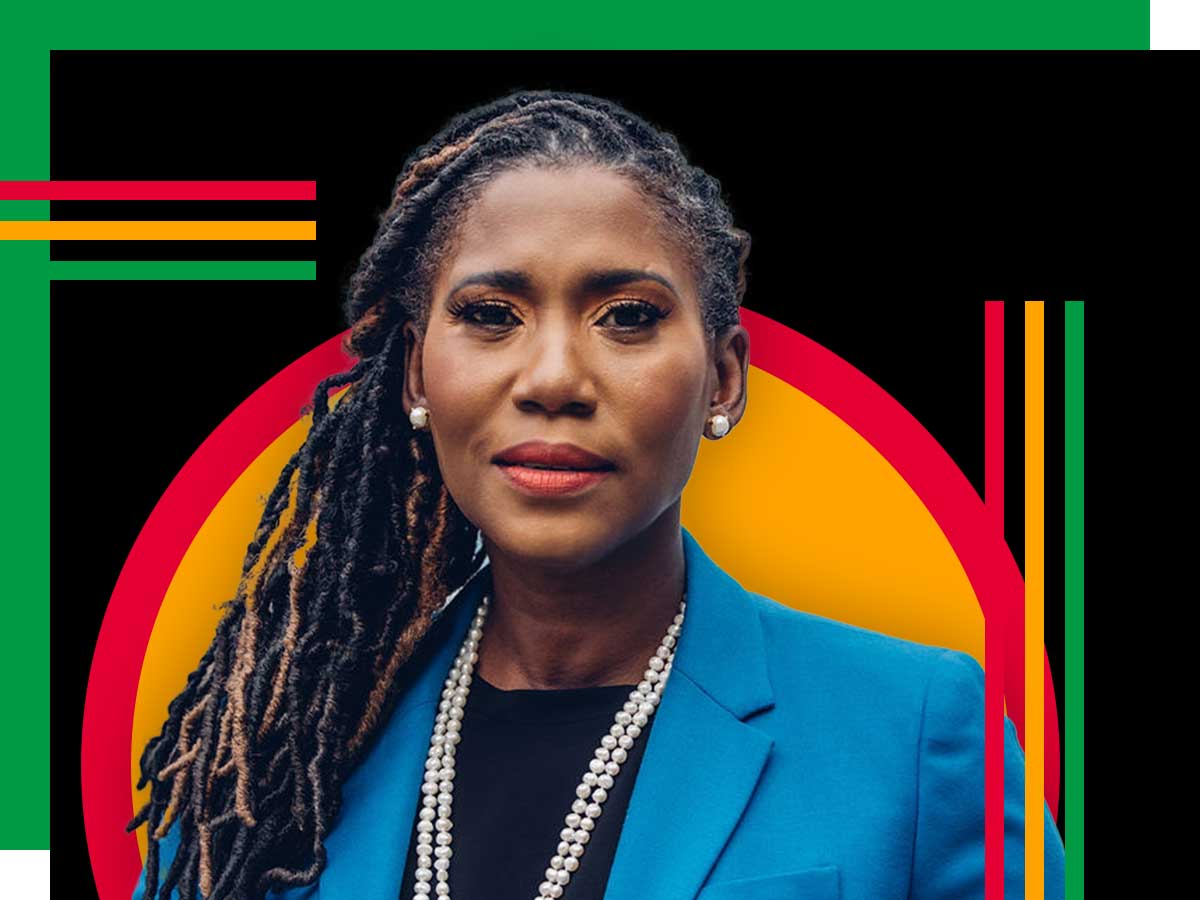
Social Work ’09
Vice-President, Jean Augustine Centre for Young Women’s Empowerment
Marsha Brown has played an important role building partnerships and providing strategic advice to TMU’s Office of the Vice-President, Equity and Community Inclusion. As a member of the university’s Viola Desmond Awards Review Committee since 2015, and through her years of involvement with TMU’s Diversity Institute, Marsha has been an inspiring role model for alumni and students.
You’ve been heavily involved with championing diversity within TMU. Why is this so important to you?
I’m accountable to my community and family. My involvement at TMU has been personally rewarding, but more than that, I am recognized by my peers as a leader. We all have a responsibility to plant seeds of hope and elicit change. I’ve never been someone to wait around for opportunities to give back or lend my voice to equity, diversity and inclusion (EDI). I believe in building capacity wherever I am.
You established the Women Champions of Diversity Award at the university. What inspired you to do this?
As a student, I worked full-time and travelled over an hour to the university. It was gruelling. Many female students are caregivers for family members and also breadwinners. Their studies and overall health and well-being are stretched as a result. My award is meant to bridge the gap between education and financial need. It’s a tangible way to support resilient female students.
What does it mean to you to be a leader and mentor in the Black community?
I was born in Jamaica and migrated at the age of 16. My paternal grandmother was a community builder. She fed the poor and cared for the sick. My mother worked at the Human Rights Commission and was amongst a handful of brave Black activists in Toronto in the ’80s. I learned at an early age that I’m not on this earth to take up space, but to make space for others to thrive.
What does Black Flourishing mean to you?
Black Flourishing is the culmination of unshakable determination to pursue excellence in the face of adversity. Dr. Akua Benjamin (Professor Emeritus and former Director of TMU’s School of Social Work) and others who advocated for EDI, envision TMU as a thriving ecosystem that would celebrate the achievements of Black alumni and the community. That vision has finally been realized.
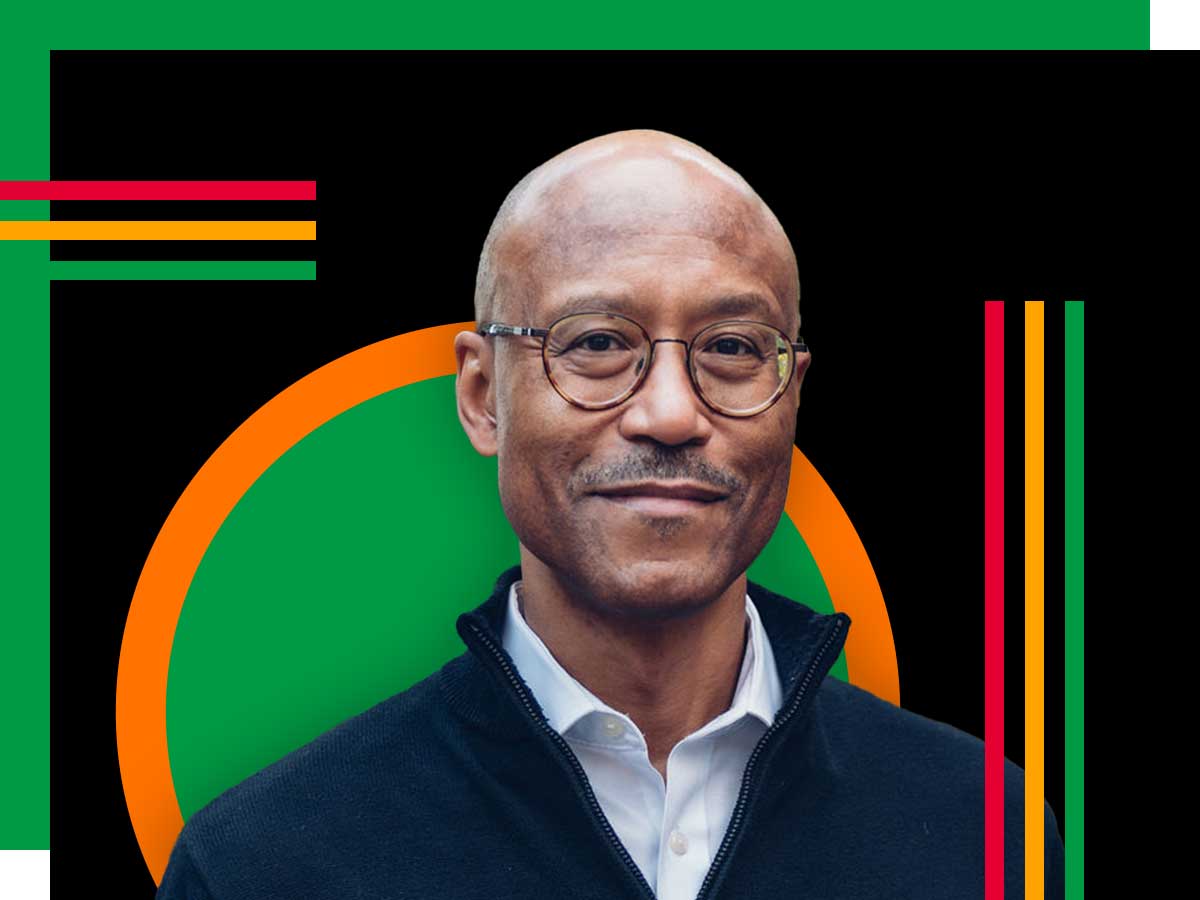
Certificate in Business Administration ’89
Partner, WeirFoulds LLP
Frank Walwyn has been named one of Canada’s top lawyers in corporate and commercial litigation by The Best Lawyers in Canada. He has been involved in many cases that have led to important or precedent-setting judgments in constitutional rights and freedoms. An active member of several legal or community boards and initiatives, Frank is the past president of the Canadian Association of Black Lawyers.
You’re a member and past president of the Canadian Association of Black Lawyers and speak frequently on diversity within the legal profession. Why is this important to you?
We as Canadians pride ourselves with being extremely multicultural and diverse. The reality is that while that may be true, racism is still very much present in our society and in our profession. There are many instances where well-intentioned lawyers act in a racist manner without realizing it. We need constant dialogue highlighting these issues and offering ways to identify and correct such behaviour. That is why speaking on these issues is so important to me.
Since entering the field nearly 30 years ago, what has the growth been like for Black professionals in law? What more needs to be done?
Blacks have lagged behind almost every other group in their relative numbers and growth in the legal profession since I entered it. I think there has to be constant, meaningful and strategic outreach to young Blacks, showing them that a professional career in law is available to them, and encouraging them to reach for it. Once they embark on the path to a legal career, mentorship, sponsorship and support must be made available to them in a committed way.
What does it mean to you to be a leader and mentor in the Black community?
Those are not words anyone should use to describe themselves. But, being described in that way creates a great sense of duty and responsibility. Some end up using those words to describe the act of giving back, of reaching out to help someone who may need some guidance. It may be as simple as finding time in a busy day to have a coffee with someone and discuss a solution to the situation they describe. I make an effort to give back and to help where I can. That is the duty and responsibility I feel. If I am described as a leader and mentor, that is probably why.
What does Black Flourishing mean to you?
Black Flourishing is a recent term for me. In academic institutions, I take it to mean the stellar results Blacks achieve when a learning environment is available to them which does not contain historic stereotypes, toxicities and discriminatory practices and behaviours.
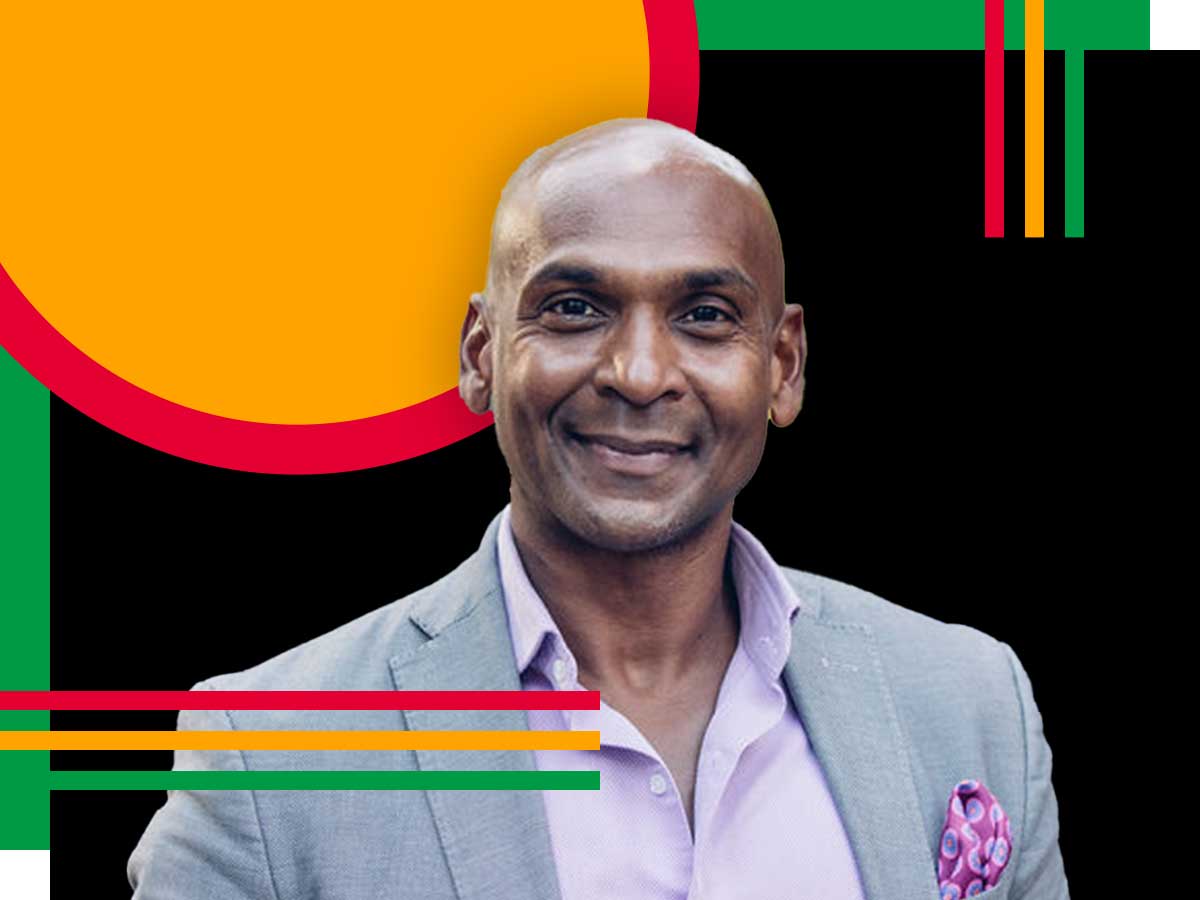
Business Management ’99
Vice President and Head LGBTQ2+ & Black Customer Segments, TD Bank Group
As Vice President and Head LGBTQ2+ & Black Customer Segments, TD Bank Group, Al acts as a key liaison between Retail, Wealth and Business Banking to embed segment support across the enterprise. He spearheads TD’s LGBTQ2+ and Black Customer Segments, designing and executing innovative strategies. These programs are considered leading edge within the financial industry across North America.
You’ve spearheaded many diversity and inclusion initiatives in the financial industry over the years. Why is this so important to you?
Simply put, it’s not only the right humanistic thing to do, but it makes good business sense. When you truly embrace inclusion, it creates a sense of belonging for everyone, where folks can be their authentic selves — allowing them to achieve their full potential. When we all operate at our best, that inevitably will drive greater personal and business outcomes.
I’ve had the honour of helping to spearhead TD’s Diversity & Inclusion (D&I) initiatives over the past 18 years, and have seen numerous lives of our colleagues and customers changed because of our leadership work. This gives me extra motivation to continue to serve our communities every day.
What progress has the financial industry made regarding diversity and inclusion in the past two decades, and what more needs to be done?
Over the years, I’ve seen incremental changes within the financial industry, however we still have a lot of work to do — this is an ongoing journey. The most notable change I’ve seen is companies are being more intentional about their D&I commitments. This is a good evolution from simply awareness, however I would like to see more consistency in support year-round — not only during Pride or Black History Month, etc.
What does it mean to you to be a leader and mentor in the Black community?
Leadership and visibility matter. This is part of my DNA. I’ve had strong mentors, to this day, who’ve made a huge impact in my life. From being nurtured by strong Black women growing up in rural Jamaica to having many mentors of all “shades and stripes” throughout my career.
I believe it’s my duty and responsibility as a leader to give back to pay it forward. One of my life’s mottos is: Each one must teach one — that’s how we help build strong communities.
What does Black Flourishing mean to you?
It means when someone can thrive in a space being their authentic selves; and can prosper unencumbered to become the best version of themselves.
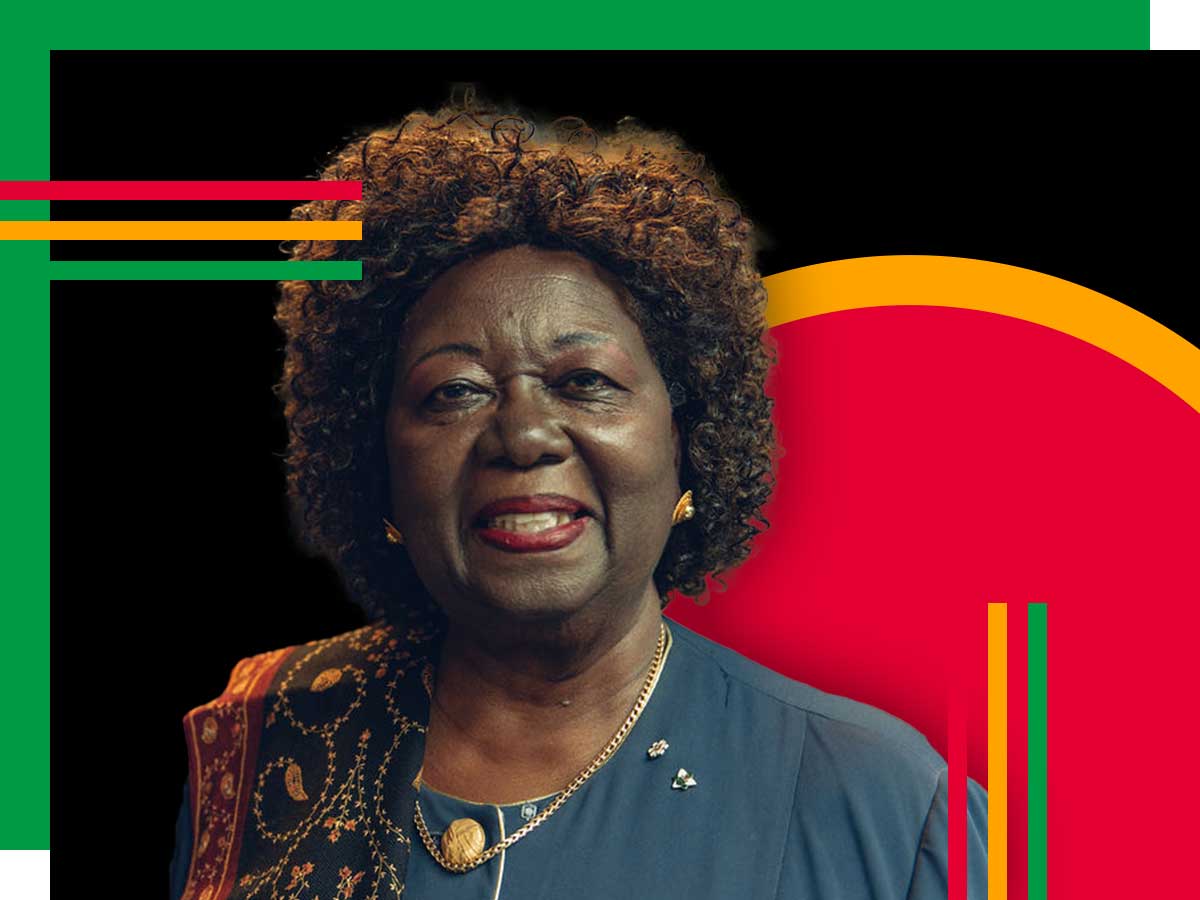
Honorary Doctorate, ’19
Former Politician, Social Justice Advocate
Jean Augustine was the first Black Canadian woman elected to the House of Commons, representing the riding of Etobicoke-Lakeshore from 1993–2006. She held many roles in that time, including parliamentary secretary, minister of state for multiculturalism and the status of women, and deputy speaker. Jean was an instrumental force in designating February as Black History Month and served as Ontario’s first fairness commissioner from 2007 until she retired in 2015.
What did it mean to you to be the first Black Canadian woman to be elected to the House of Commons, and how have you seen diversity in Parliament increase since then?
In 1993, I was elected as the first African Canadian woman to the Parliament of Canada. That election signaled the beginning of efforts by the community to ensure that we are represented in all areas of decision-making. My election was historic as the Black presence in Canada dated back to 1603.
Why was it so important to you to have Black History Month formally recognized by Parliament?
Black History Month celebrations began in the U.S. around 1926 and quickly spread to Canada through the efforts of the Canadian Negro Women’s Association and the Ontario Black History Society. It was important to have Black History Month officially recognized in Canada, and my efforts to motion Parliament to designate February as Black History Month in Canada got unanimous consent. It gives me much pleasure to see that 28 years later, Black history is seen as Canadian history, and there are events in every area of society. Hopefully, learnings in February will carry through the rest of the year.
Why is it important to you to be a leader and mentor in the Black community?
As an educator, I know the importance of role models and mentors. I also believe that leadership is crucial to our community’s success.
What does Black Flourishing mean to you?
When I see TMU’s focus on Flourishing, it conjures to me images of ideas, planted and with care, that grow, blossom and display beauty. Black Flourishing, in an environment where diversity is appreciated, nurtured and encouraged through inclusivity, enables individuals to succeed. This is really what we are all working towards.
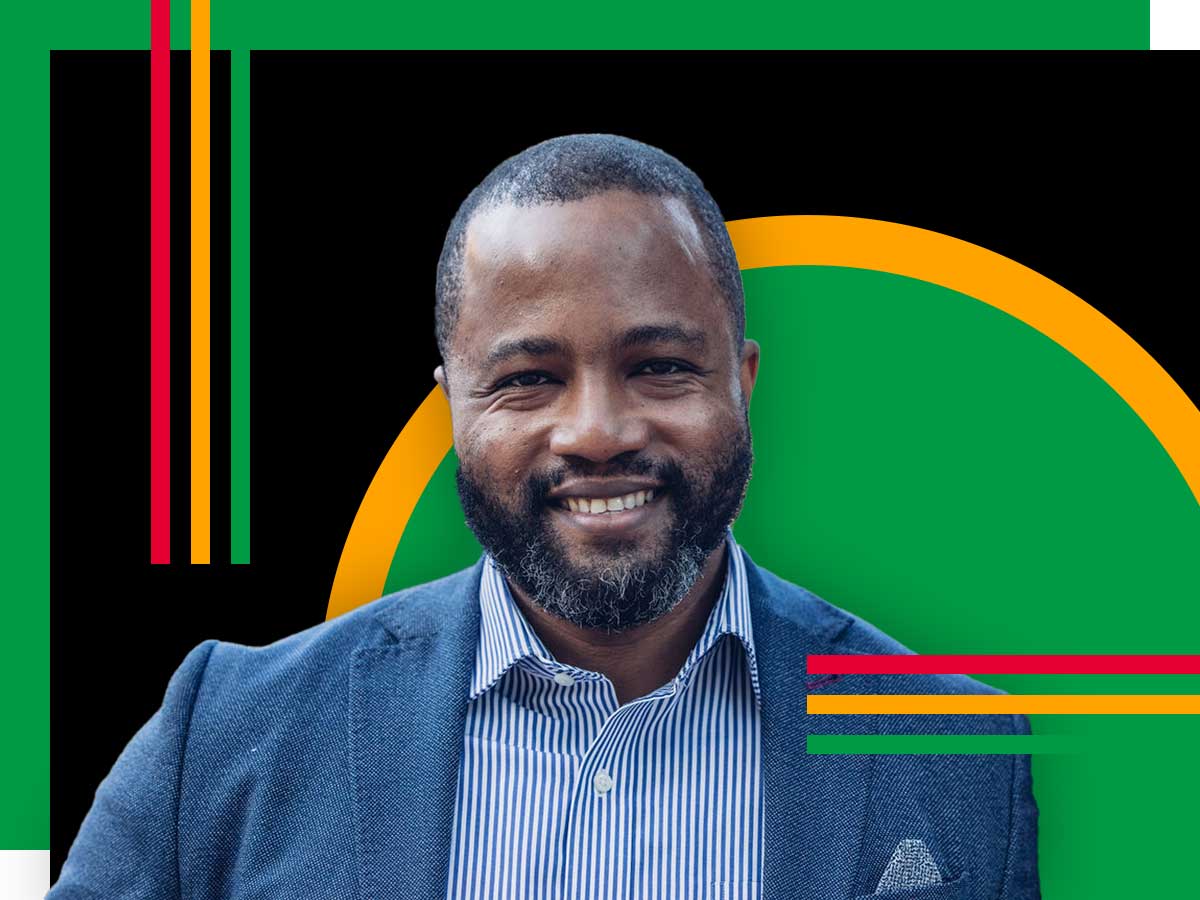
Co-Founder and General Partner, BKR Capital
Isaac Olowolafe Jr. is an award-winning real estate entrepreneur, angel investor and philanthropist. His corporation, Dream Maker Inc., successfully operates multiple divisions, including a brokerage, real estate development, venture and insurance. Isaac’s generous donation to TMU created the Isaac Olowolafe Jr. Digital Media Experience Lab. He also funded the launch of the first Black Tech Incubator out of the DMZ, alongside with the co-launch of Black Innovation Capital (now BKR Capital), the first institutionally backed fund for Black entrepreneurs in Canada.
As a successful entrepreneur, why is it important for you to give back to support the next generation of Black entrepreneurs?
Running Dream Maker for 15+ years has come with a lot of doors being opened for me in the development space and venture space. As a result of that, I feel it’s important to pay it forward by creating as many opportunities as possible for the next generation, with the goal of normalizing Black entrepreneurs in all industries.
Since starting your own business, what has the growth of Black-led businesses been like and what more needs to be done to see them succeed?
The last two to four years has seen great growth for Black-led businesses. Depending on the sector, I have noticed more increases. For example, through the program funded at the DMZ (Black Innovation Programs), I have noticed several more companies launching and growing in the tech space. What is great to see is the support system for entrepreneurs from loan programs, incubators, venture and mentoring. If we can increase that, we will see more successful Black-led businesses.
What does it mean to you to be a leader and mentor in the Black community?
I feel fortunate to be given the opportunity to operate in spaces that have motivated others in the Black community to pursue. Watching my parents give back has provided a great example for me to follow.
What does Black Flourishing mean to you?
It means thriving in all industries and institutions, while creating infrastructure across Canada.